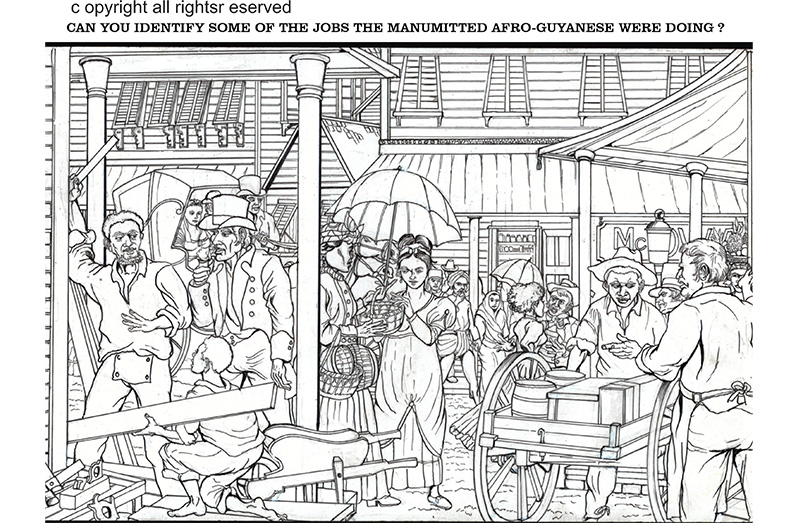– WHETHER IN YOUR IMAGINATION OR WITH THE DEBATE OF ARGUMENTS SET TO MISGUIDE OR TO ENLIGHTEN
THE emancipation from chattel slavery, which we celebrate on August 1 each year, is one such significant event that has varied realms still unexplored. These cannot be left unaccounted for or unoccupied, lest they be squatted upon by hostile vagrants and readjusted to suit retarding and redefining presumptions.
Emancipation was followed by years of conflict to initiate even the most basic levels of rights and privileges common to a new and enlightened age.

True, the plantocracy had become deities of a kind. The plantation owners possessed power greater, at times, than the colonial governor. In fact, they were the powers that be. And though some levels of indentured workers were imported, these people did not meet the ready criteria that the sugar plantations required. Thus, there were always conflicts, and methods were employed to strangle the new villages that the emancipated had purchased; to strangle the business services that the emancipated offered to the town of Port Stabroek — services the township required. The plantocracy hurried to undo the worthy efforts of their former slaves.
The emancipated, with monies saved, had bought plantations that some planters had surrendered for sale. These became the first villages of the then British colony of Guiana. Thus, they were subject to taxes, and this they paid for drainage and irrigation services that were never supplied. Instead, their taxes were used to finance indentured labour. This led to hardships in the villages. Yet it did not stop the hostilities and schemes of the plantocracy.
They also targeted the services that the African emancipated were now offering in the township. They were the equivalent of the modern taxi service, with their coaches. Before Emancipation, the enslaved population was already producing farm crops that kept the two markets of Demerara active — the Stabroek and Mahaica Sunday markets remained functional. It was not unusual for them to continue perfecting this after Emancipation. But they were plotted against.
The goal of the plantocracy was to destroy all efforts made by the formerly enslaved. Those who were successful were to be undermined and replaced by sections of the very indentured, selected for those schemes. The spite that was contrived then followed the emancipated into the early 1900s and beyond.
The writers and scribes that evolved from among the emancipated did not hesitate to highlight the true nature of Emancipation — that it was not the act of Emancipation announced by the enslavers that must be at the forefront of the celebration of the breaking of some of the chains — but rather, it was the struggle and sacrifices of the enslaved in the pursuit of total freedom that must be identified, venerated, and explained to the innocent and to all.





.jpg)








